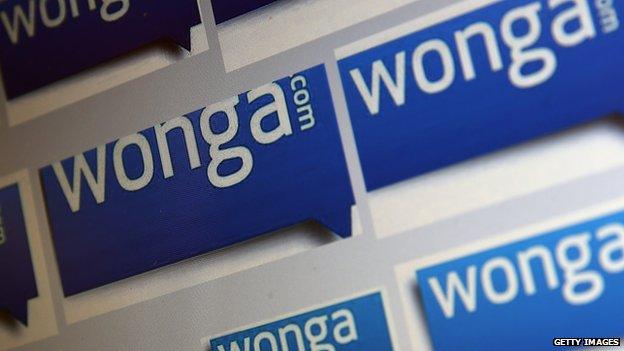Labour pledges cap on overdraft fees and interest payments
- Published
- comments

Labour said the policy could help 2.7 million people who are stuck with permanent overdrafts
Labour says it would cap the total amount anyone could pay in bank overdraft fees or interest repayments.
Shadow chancellor John McDonnell said he wanted to end the "national scandal" of low paid families trapped in debt.
Labour said the policy could help 2.7 million people who are stuck with permanent overdrafts, saving them the equivalent of £86 each per year.
The Treasury said it had already tightened the rules to protect debtors and cracked down on payday loans.
Mr McDonnell said: "Too many families are having to rely on borrowing just to get to the end of the month, and are facing huge costs from our High Street banks.
"The national scandal of the low paid debt trap has to end. More needs to be done to level the playing field and bring greater fairness in consumer finance."

Actor and campaigner Michael Sheen is supporting the proposal
According to Labour, people stuck with permanent overdrafts use them more than 85% of the time while incurring higher charges.
The party also said overdraft charges could be up to four times higher than the equivalent borrowing from payday lending.
Under the policy, regulators would impose a limit of £24 per month per £100 borrowed on any interest, fees and charges related to an overdraft.
That would be equivalent to the current cap on payday loan interest charges.
The proposal was welcomed by the actor and founder of the campaign group End High Cost Credit Alliance, Michael Sheen.

Payday lenders like Wonga have faced tougher rules since 2015
The Frost/Nixon star, who is a Labour supporter, said: "High cost credit is more than just pay day loans, rent to own businesses or doorstep lending.
"Millions of people across the UK are also trapped in their overdrafts by extortionate rates of interest charged by reputable high street banks."
Overdraft buffers
Banks say they have introduced a number of measures to help customers avoid going into their overdrafts and minimise any charges when they do.
These include accounts with "overdraft buffers", in which no overdraft fees are charged, and alerts for customers who are about to enter into an unarranged overdraft.
The government has also taken steps to help vulnerable people in debt. Last year it committed to introducing a six-week grace period in which debtors would be protected from enforcement proceedings and mounting interest charges.
And in 2015, the Financial Conduct Authority (FCA) imposed a cap on payday loan costs following criticism of lenders.
The FCA has also raised concerns about overdrafts and plans to consult on possible remedies later this year.
A Treasury spokesperson said: "We know that families can struggle with debt. That is why we have tightened the rules to ensure that money can only be lent to people who can afford to repay.
"We have also cracked down on payday loans, saving borrowers over £150m a year, and are introducing an energy cap to help people with household bills."
- Published19 March 2018

- Published20 March 2018
